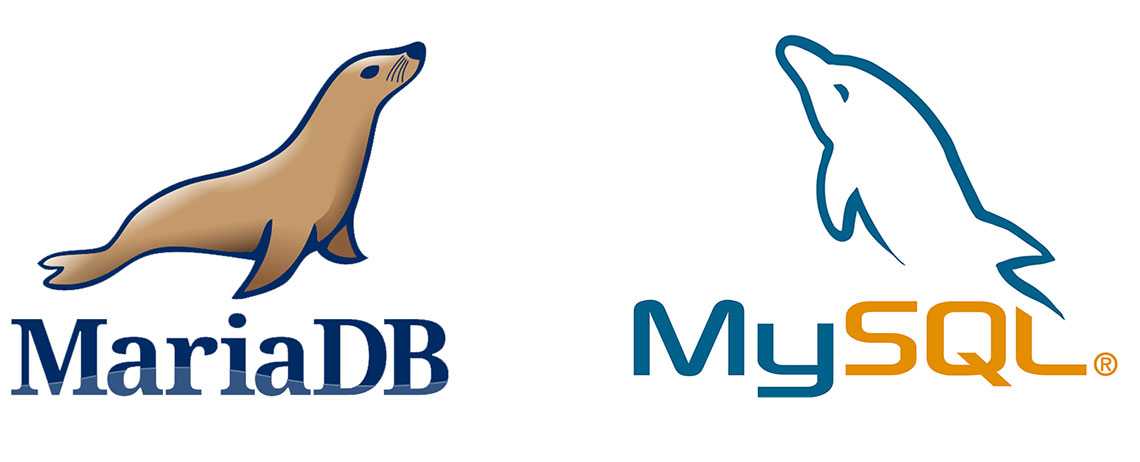标签:rip uil into 指定 配置参数 分享 restart 操作 登录

启动mysql或停止mysql的常用语句如下:
1、启动服务:
centos6:
service mysqld start
centos7:
systemctl start mysqld
2、重启服务:
cento6:
service mysqld restart
centos7:
systemctl restart mysqld
3、关闭服务:
cento6:
service mysqld stop
centos7:
systemctl stop mysqld
主配置文件:从上到下检查,如果有重复的配置参数则在后边的配置文件中的参数生效,覆盖检索

1 /etc/my.cnf 2 /etc/mysql/my.cnf 3 /etc/sysconfig/my.cnf 4 /usr/local/etc/my.cnf 5 ~/.my.cnf
查看默认配置:
/usr/libexec/mysqld --print-defaults
默认数据库库文件存放目录:
/var/lib/mysql/
套接字文件
/var/lib/mysql/mysql.sock
PID文件
/var/run/mariadb/mariadb.pid
日志文件
/var/log/mariadb/mariadb.log
MySQL 数据库是一种C\S结构的软件,即分为:客户端和服务端。
若想访问服务器,则必须通过客户端;服务器应该一直运行,客户端则在需要使用的时候运行。
1、本地连接
mysql -u用户名 -p密码
例如:
mysql -uroot -p123456
其中 -u 与用户名root之间可以有空格;-p 与密码之间不能存在空格。
2、远程连接
mysql -u用户名 -p密码 -h IP地址 -P 端口号
例如
mysql -u root -p123456 -h 192.168.1.103 -P 3306
在连接时我们还可以指定具体登录的数据库,例如指定连接到testdb数据库
mysql -uroot -p123456 -D testdb
在本地连接到mysql时,可以指定通过特定套接文件连接到数据库
mysql -uroot -p123456 -S /var/lib/mysql/mysql.sock
连接数据库的同时执行对应命令,并返回命令结果,并不进入mysql提示符;即非交互式模式
mysql -uroot -p123123 -e ‘use mysql; select user,host,password from user;‘ mysql -uroot -p123123 -e ‘create database if not exists testdb; show databases;‘
数据库的常用选项

1 -A, --no-auto-rehash 禁止补全 2 -u, --user= 用户名,默认为root 3 -h, --host= 服务器主机,默认为localhost 4 -p, --passowrd= 用户密码,建议使用-p,默认为空密码 5 -P, --port= 服务器端口 6 -S, --socket= 指定连接socket文件路径 7 -D, --database= 指定默认数据库 8 -C, --compress 启用压缩 9 -e “SQL“ 执行SQL命令 10 -V, --version 显示版本 11 -v --verbose 显示详细信息 12 --print-defaults 获取程序默认使用的配置
注:
1、prompt \u@[\D] \r:\m:\s-> 修改提示符,如果需要永久修改则在my.cnf中 [mysql] 下加入
prompt="(\u@\h) [\d]>
2、批量处理,将sql脚本导入库执行
mysql < /path/somefile.sql
使用help获取帮助

1 MariaDB [(none)]> help 2 3 General information about MariaDB can be found at 4 http://mariadb.org 5 6 List of all MySQL commands: 7 Note that all text commands must be first on line and end with ‘;‘ 8 ? (\?) Synonym for `help‘. 9 clear (\c) Clear the current input statement. 10 connect (\r) Reconnect to the server. Optional arguments are db and host. 11 delimiter (\d) Set statement delimiter. 12 edit (\e) Edit command with $EDITOR. 13 ego (\G) Send command to mysql server, display result vertically. 14 exit (\q) Exit mysql. Same as quit. 15 go (\g) Send command to mysql server. 16 help (\h) Display this help. 17 nopager (\n) Disable pager, print to stdout. 18 notee (\t) Don‘t write into outfile. 19 pager (\P) Set PAGER [to_pager]. Print the query results via PAGER. 20 print (\p) Print current command. 21 prompt (\R) Change your mysql prompt. 22 quit (\q) Quit mysql. 23 rehash (\#) Rebuild completion hash. 24 source (\.) Execute an SQL script file. Takes a file name as an argument. 25 status (\s) Get status information from the server. 26 system (\!) Execute a system shell command. 27 tee (\T) Set outfile [to_outfile]. Append everything into given outfile. 28 use (\u) Use another database. Takes database name as argument. 29 charset (\C) Switch to another charset. Might be needed for processing binlog with multi-byte charsets. 30 warnings (\W) Show warnings after every statement. 31 nowarning (\w) Don‘t show warnings after every statement. 32 33 For server side help, type ‘help contents‘
标签:rip uil into 指定 配置参数 分享 restart 操作 登录
原文地址:https://www.cnblogs.com/Gmiaomiao/p/9180480.html